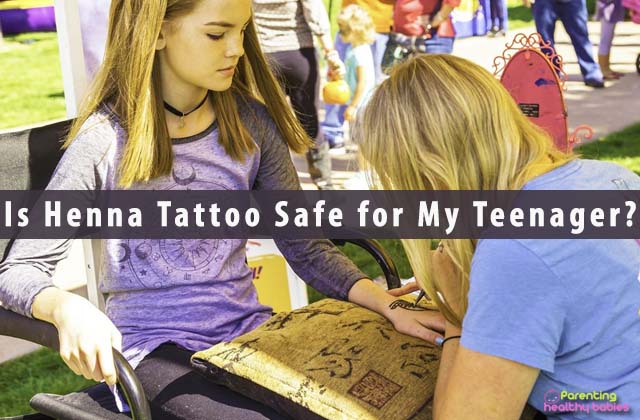Tattoos do not have to be forever. In addition to those drawings that can be made on the skin with ink and needle, there are other types of creations that last much less time and are made through henna. Henna (its scientific name is Lawsonia inermis) is a plant that grows naturally in subtropical areas and plantations for exploitation in Pakistan and India. It is used since ancient times as natural dye to decorate the body, since its leaves, once they have been ground, produce a red dye. Although adults can enjoy them, the skin of children is much more delicate, and there are many contraindications for our children to see them.
Henna Tattoo: Side Effects for Teenager
Henna is not recommended for children as it can give many side effects as mentioned below:
Redness
Since henna tattoos are temporary does not mean that they cannot be harmful to the skin. In the case of henna tattoos, special care must be taken with the skin of the children because it could redden. A reddening is very evident because it consists of the appearance of red spots in the area in question, which can cause itching and pain in this part of the skin.
Appearance of blisters
The reddening of the skin could lead to an itching in the ‘tattooed’ area, and thus generate blisters. The problem with these blisters is that they are usually full of fluid and are very painful. Although it does not happen in all cases, it is a risk that happens with the components of the henna tattoo and other external agents of everyday life such as temperature changes, shower gels or solar radiation.
Depigmentation of the skin
One of the most serious problems of the use of henna to make tattoos to children is the possibility of a depigmentation of the dermis. This means that in the area indicated for the drawing it could be modified with spots. They can be clear or dark, but they have the ability to appear on the part of the body in which the tattoo was made, due to its chemical components.
Increased sensitivity of sunlight
Any alteration of the skin by an external agent such as henna could cause problems in the dermis, as is the case of a hypersensitization of sunlight. This means that the sun’s radiation will penetrate more sharply if the skin is adorned with a tattoo of this material. In addition, the risks are multiplied if instead of using natural henna, the drawing is carried out with black henna, highly dangerous for any type of skin, but much greater if it is a child dermis.
In recent years black henna tattoos are being introduced. With them, a more attractive bright black color is achieved. They fix faster and last longer. For this to be the case, other dyes are added to the henna. One of them is p-phenylenediamine or PPD, which is forbidden for use on the skin. They can cause severe allergic reactions on the skin. And they can also sensitize permanently so that people who come in contact with these dyes later suffer reactions that can be serious.
On the other hand, people can be sensitized forever. If there is later, at any time in your life, an exposure to these substances (this dye is found, for example, in clothing dyes), can suffer a picture of allergic contact dermatitis. Reactions, in these cases of dermatitis, may require urgent medical attention or even hospitalization. All people who put a black dye on their skin, have a reaction with itching and blisters, and should see a doctor.
The black henna is the one that can produce serious allergies, it is of intense black color, and its duration on the skin is of more than a week. The problem is that in most positions the black henna is applied because the temporary tattoo lasts longer.
Therefore, this summer attention to the stalls that propose black henna tattoos for children, we must be very sure that the product used does not carry large amounts of PPD and is really based on henna, a natural product of which rarely cases of allergies have been described. In stalls and premises mostly it is not the natural tincture that is used. They are temporary tattoos of black henna.
In case you have been affected by the black henna (purposely or unknowingly), do visit your skin doctor as soon as possible and get yourself treated. As any delay made in the treatment can lead to various side effects on your skin as mentioned above.
Hope this article was of help to you! Please share your comments/queries/tips with us and help us create a world full of Happy, Healthy and Empowered Women!!
References
https://www.thesun.co.uk/living/3894328/black-henna-tattoos-safe-remove-allowed-school/
http://www.dailymail.co.uk/health/article-197151/Is-childs-tattoo-safe.html
